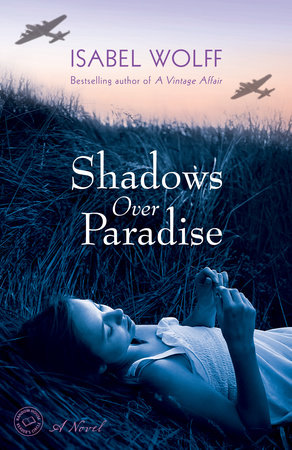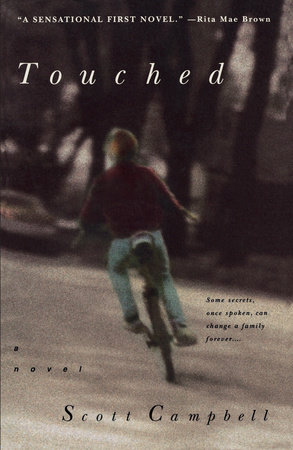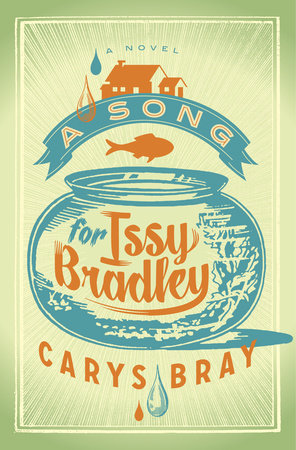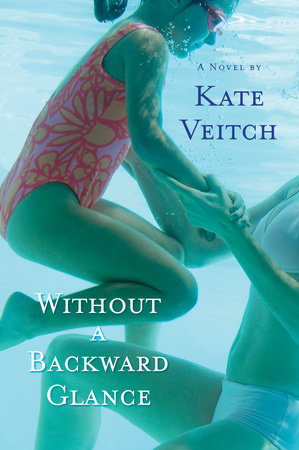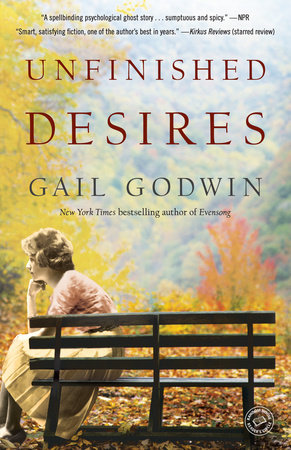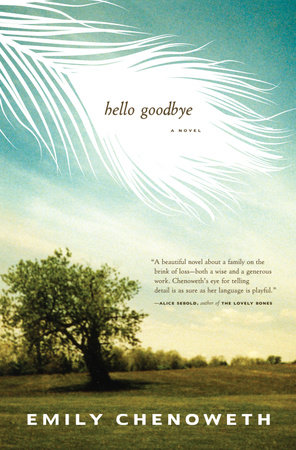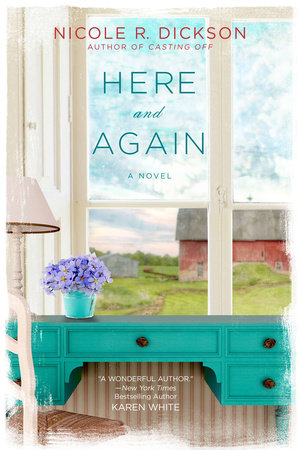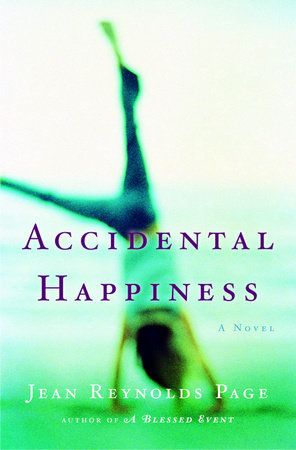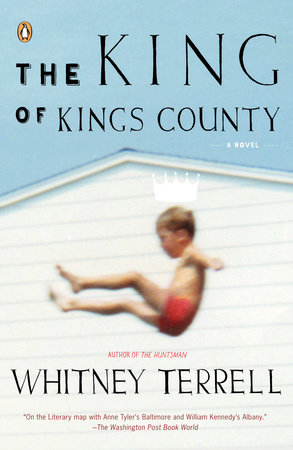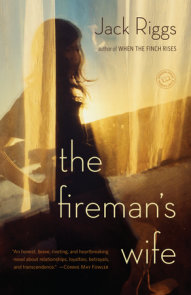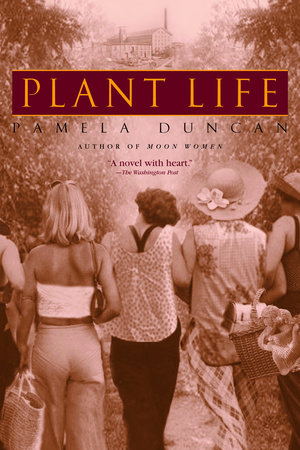Author Q&A
JAYNE CAVAGNARO has known Jack Riggs for nearly nine years and has watched him grow as a writer, first with his short stories and then as a novelist. She sat down with Jack shortly after he had returned from New York where he delivered the final manuscript to his first novel, When the Finch Rises, to his publisher.
Jayne Cavagnaro: Many of your short stories centered around a young Raybert Williams. Can you talk about where he came from?
Jack Riggs: Sure. When I was in graduate school at the University of North Carolina at Greensboro, I wrote a story that actually had the same title as the novel. In fact the title of my thesis ended up being When the Finch Rises but the thesis story was about an older Raybert, a tortured man with his own problems. My original idea was to write a collection of stories that began with Raybert as a young man and then followed him into his adulthood. That was what I was working on when it became obvious that I should be writing a novel instead of stories.
JC: So you decided to use the younger Raybert instead of the older man?
JR: Yeah because at the time I had so many stories about the boy that I thought it would be an easier transition. I was always looking out for the path of least resistance (grins), you know, the story structure that would be easiest to accomplish. But as I would quickly find out, there is no path of least resistance when you are writing a novel. It is extremely difficult even when you have stories sitting in front of you
to give you a certain path to follow. I kept trying to just plug the stories into the novel and write around them, but that was stupid. When you write a story it really is a world within itself and I was writing these so they could stand alone in literary magazines, yet at the same time I wanted them to be connected as one big story. That is a very hard thing to do. It would have been better to just write many stories and then pick out the ones with an overriding theme instead of trying to connect them with some string that would suggest that they all flow together.Well it didn’t work is the point and so I ended up having to reconsider the stories
as part of the novel.
JC: Are they now a part of the novel?
JR: Yes, they are, but it would be difficult to identify the short stories now. In fact when I read the novel, I don’t see them anymore at all. I have sprinkled bits and pieces of the stories throughout, so there are very few large chunks sitting there for identification. It is all now just material that enlarges
and enriches the story. I think in some ways, the novel still carries the spirit of the original stories, but now it is just so much more detailed and involved. So what was the question?
(Laughs)
JC: Well the question I asked was why you chose to use Raybert as a young man instead of as an adult.
JR: Right, well I did sort of go off there, didn’t I? I decided that Raybert should be young because that was where I was when I shifted modes. When I decided on a novel instead of stories, I knew it was going to be from the point of view of Raybert as a young boy. Also Palmer existed as a boy and I think I always knew that he would not be in Raybert’s life as an adult and Palmer had to be in there because he was such
an important character. At the time I didn’t know how special he would be, but I knew he was magical and that he would be very influential.
JC: Tell me about the relationship that he has with Palmer.
JR: Palmer is Raybert’s best friend. They meet on a very dark day in the history of the United States; it is the day President Kennedy is assassinated. That is the back story of the novel, so I don’t think I give anything away telling you this. But I will tell you that it is at that moment that we understand Palmer is going to be different from other boys. Palmer is special and Raybert is drawn to him because of
that, but also because subconsciously, Raybert knows that he and Palmer are a lot alike. They come from very dysfunctional backgrounds, each having dark family problems, and they both want to get away from their families. They are compatriots, they are blood brothers, and they love each other in some deep, unexplainable way that on the surface appears a bit deviant, but really is not.
JC: What do you mean deviant?
JR: Well, the boys are seen in some rather compromising situations that have been misconstrued by some who’ve read the short stories and bits and pieces of the novel, but there is nothing to it. The boys are very love hungry. They crave unconditional love; love that the Greeks called “agape.” They don’t get it in their families because the families are so dysfunctional, so caught up in their own mental angst, that the
boys are pretty much left out and must fend for themselves when it comes to love. The boys love each other and Palmer makes that love much more intense, and I like that. I like Palmer’s intensity because his love for Raybert is complete. It is whole, as whole as it can be for a twelve-year-old boy who is still under the control of a dominant parent. The boys need each other to survive. It is as simple as that.
JC: But Raybert has Aunt Iris.
JR: Yes, he does. And that is probably why Palmer’s love isso much more intense. Raybert has the possibility of agape love through his aunt Iris and uncle Clewell. You can see how much they care for Raybert because of what they sacrifice for him when Evelyn, Raybert’s mother, is sick and Ray
Sr. is AWOL from the home. Aunt Iris is there for Raybert always, so he does have a reference point for love. Palmer has none at all. He is in a very desperate place. It hurts to think about it.
JC: To you these boys are real.
JR: As real as they can be. Yes, they are my boys and it hurts when I see something bad happen, but I have to write it and let it live as their lives, because as I have said, they wrote the story. I just transcribed what they told me. There is one incident that happens to Raybert early on in the book. Palmer
shows Raybert a picture of his father in a very compromising and horrible position. I was at the beach when I wrote that scene. I got down there and got all my writing paraphernalia set up and started in on the story, and then suddenly I wrote the scene where Palmer shows Raybert the photograph of his
father.Well, I just stopped dead right there and didn’t know what to do. Raybert had just told me something about the story that I didn’t even know existed. It had never come up in the short stories and I had no idea it would come up the way it did. So I stopped writing and took a walk on the beach. Then I came back and for the next two weeks, tried to write the scene out, tried to convince the boys that this
wouldn’t happen in 1968 and they assured me they knew it wouldn’t happen in 1968 and then Palmer said, “and you can tell by the type of photograph, this happened a long time ago.” I told him that I still didn’t want the scene in the book and so I kept trying to rewrite the scene.
JC: I know the scene you are referring to and it is still in there.
JR: Yep. I tried for the entire two weeks to get it out, but it just would not go, so before I left on the last night of my trip, I accepted the fact that the scene would be there and the boys seemed to be happy about that. They always knew it was going to be there because this was their story, not mine.
JC: But it is yours?
JR: Yeah, I got the advance. But don’t tell them that. They would be royally pissed off. (Smiles)
JC: You just said that Palmer told you the picture he showed to Raybert was older than 1968. That’s a pretty specific year in the history of this country. So how important is the historical setting—time and place—to the telling of Raybert’s story?
JR: To me it’s very important. It’s the era that I grew up in. I was about the same age that Raybert and Palmer are and I remember those years so vividly, all the things that were going on. And even though I was really on the periphery of it all, historical moments of that era certainly had their effect on
me. When I first started thinking about this novel, I envisioned something entirely different. It was to span ten years from the Kennedy assassination to the resignation of Nixon. Just think about that ten-year span. What an amazing decade that was. Kennedy’s assassination, the escalation of Vietnam, civil rights, MLK’s assassination, Bobby Kennedy’s assassination, Chappaquiddick, Woodstock, the hippie revolution, and finally, Nixon’s resignation. For me, those years were life shaping and I wanted to delve into that idea.
You see, I think we as a society are ultimately shaped by whoever is in the White House and it was my desire at first to write a story about that ten-year period and my theory as part of the way the characters were shaped. That was the intention.
JC: Obviously you pared that back some.
JR: Well, only by nine years. (Smiles) It became apparent very early on that I was not going to be able to hold all of it together. I teach and I have a family and I wanted to be a writer. All of it combined made me realize that the only way I was going to get something done and give the boys a voice was to deal with the story I could handle. So I went for one year instead of ten, and instead of following the boys into adulthood, I ended it after a series of life-altering events that occur in this particular year.
JC: And you used historical events to help express all of this?
JR: Not at first. Mostly what the novel consisted of when it was sold were events or iconographic elements that would identify the time period. Evel Knievel is in the book, there are television commercials and programs and pop-culture icons scattered throughout. I really liked what I had doneand I kept revising it until I felt the story was so tight that an agent or publisher would not be able to pass on it.
JC: And you were right.
JR: Well, let’s not go that far. There were enough passes that I was humbled by the process, but yes, eventually I found a great agent and a wonderful editor who loved the work as much as I did. That was so important to me, that the editor and my agent really have a love for the work. After we made the deal, I reread the book and felt like there was still something missing. I was not really happy with the
book and when my editor at Ballantine, Maureen O’Neal, reread it, our feelings on its weaknesses were so close it was scary. She saw the same needs as I did and so she told me to work on the back story of characters and to strengthen some of the character motivations so the story would be clearly
understood. By saying that, Maureen gave me the green light to go back in and add stuff from my original idea. I was able to reintroduce all the historical information that I think helps define the book and really fills out the story.
JC: So now it is more of what you were after originally?
JR: Well it still covers only one year in the boys’ life, actually about seven or eight months, but I was able to capture more of the spirit of what I wanted to do originally. You know, it’s my first book. It was an amazing learning curve and now I will be ready to attack other ideas in the future. I hope.
JC: You commented earlier that you were about the same age as the boys. I think you said twelve. Are any parts of the novel based on your own experience growing up in a small southern town at about the same time as these two boys?
JR: The easy answer is no. And the other easy answer is yes. I think when writers do period pieces that involve a time frame from their own lives, they are going to be influenced by their experiences as they write. It may be only the geography that they use to define the geography of the book. Others obviously are writing about their own lives, fictionalized, of course. For me, the story itself is total fiction. It’s about fictional characters who live in a fictional mill town in North Carolina with a fictional creek that can reek havoc on the unsuspecting. I never lived in a mill town, though there was one on the other side of the highway from my elementary school. I remember it as being a dark and dangerous place, though I doubt it was all that. I never knew a boy like Palmer, though I used boys I knew to create the character. I certainly have a connection to the time period like these boys have, but there was no outwardly significant
mental illness in our family. People have died in my life and I am sure I have used them as points of reference, but that’s where it ends. I am not trying to resurrect any family ghosts. I’ve got ghosts, but these aren’t them. Certainly my family had its own dysfunctions, but they never manifest themselves like the ones in the story do. I did, however, reflect on things that happened in my own life and town where I grew up, and they have found their way into this story, albeit very differently and more dramatically from
what I remember.
JC: And the Finch Creek does flood. It causes destruction and death that is significant to Raybert. What is the creek’s importance to the story? After all, it is the title of the book.
JR: It is the title and I think that it becomes a very significant event in the book because of its effect on Raybert and his father. It’s an event that makes both father and son very vulnerable. You have to remember the scenes preceding the storm that makes the Finch flash. It chronicles a very important
time in Raybert’s life when he begins to feel that anything is possible, that his family will be regular and
everything will be okay. For Ray Sr. it is a time of attempted grace and redemption. He is after forgiveness from Evelyn for something he has done, but what the reader should come
to recognize is that he is not winning a costly grace but a cheap grace. He is trying to undo something without realizing the degree of suffering that is required. Again it is that idea of the cheap fix rather than the more difficult road where the journey will have true significance to one’s life. So after the flooding when Ray Sr. has to tell Raybert the bad news of the storm, both are placed in vulnerable positions, a true father-and-son place where each has to confront things that are ultimately tied together. It is a moment where the two are forced to confront each other: a father who has not been around much and a boy who wants him to be there desperately, but also has proof of his father’s dangerous nature—a picture hidden deep in his sock drawer. The creek ties the town together and in some ways ties Raybert’s family together. It’s a nice metaphor I think.
JC: Do you work these types of metaphors out as you are writing or are they things that just naturally appear?
JR: I have heard this debate before, you know, it’s the chicken and the egg debate. What came first, the story or the thematic idea?Well, I’ll tell you this, the thoughts about Finch creek just came to me as you asked the question and I thought about it for a bit. It’s there no doubt, but I don’t sit around with a blackboard full of metaphors trying to fit them all in. Still I did start writing with the idea that this
would be a story about redemption, salvation, and grace. At first I tried to make sure the thematic material was there, but the story was horribly contrived and melodramatic at best. When I stopped doing that and just let the story flow, then the thematic material evolved from that subconscious level into the work.
JC: So what came first, the chicken or the egg?
J
R: (Laughs) Well for me it was definitely the egg. The story has to be told first. Be brave and believe in yourself as a writer, and the rest of it will be embedded in the text for some bright young Ph.D. student to find and do their dissertation on further down the road.
JC: You keep talking about costly grace. Could you talk a bit more about this thematic idea?
JR: Sure. It should be directly attributed to Dietrich Bonhoffer
from his book The Cost of Discipleship. Bonhoffer was a Lutheran theologian in Germany at the time of Hitler and was eventually arrested and executed for his role in a conspiracy to kill Hitler. His book was first published in 1937. Bonhoffer’s life is one of costly grace. He had come to the United States in the late ’30s but felt if he was to have any real place in the rebuilding of Germany after Hitler was gone, then he needed to go back to Germany and live and fight the good fight. He was well known for his work and after his death, his theological writings became even more significant. So for me his ideas of costly grace are important. We cannot look for the easy out. I tried to plug my short stories into the novel form as the road of least resistance and it was horrible. Also I tried to be thematically specific
early on and the writing was horrible. I had to sit there and suffer to find the story and let it ooze out, then refine it and refine it again until I had what I wanted. I believe this novel is a product of costly grace, as all works are. And in the story, there is great costly grace. Palmer and Ray Sr. probably pay the biggest price, but everybody suffers in the book and in the end I think it is Raybert who learns the most, accepts
what happens, accepts the costly nature of his own grace, and then rises above it all, symbolically, in the book’s conclusion. O’Connor talked about grace being prevenient, always there waiting to be discovered, or for O’Connor, waiting to knock the protagonist to his knees, or worse. I think that same kind of grace is prevalent in When the Finch Rises. It’s not violent as in O’Connor’s work, but it comes from dangerous
places and involves great sacrifice, and I think is only awarded to a few in the book, maybe to Ray Sr. and Raybert, and in the end, maybe just to Raybert. After all it’s his story. It’s his journey.
JC: Does the mother find redemption? There is a very important segment of the book that deals with her mental illness. What was the genesis of this and how is Evelyn reconciled?
JR: That is a very good question. The mental illness is controlled, but it’s done in a very sad way. I am not sure about the mother’s redemption or if it has actually come by the end of the book. Like I said, this is really Raybert’s story, told from his point of view some years later, so most characters are agents that act upon him. But the mother, I think, finds a place and becomes restful from her disease. She comes to a strong realization that she is sick and finally gets the help she needs, though it’s not done voluntarily. It’s sad what finally happens to her, but Raybert gets his mother back in some ways, and I think if you asked him how he feels about his mother and her situation by the time the story comes to a close, he would say he feels good about it. So maybe there is redemption for her in there somewhere. When I was growing up, there were times when really bad mental illness would hit the front page of our newspapers in tragic headlines, but there were many more instances when mentally ill folk in town were talked about regularly but their lives never exploded publicly at all. There was a quiet and somewhat respectful public awareness, but the illness and the behaviors that accompanied it were left alone, acknowledged but quietly ignored, if you know what I mean. I remember the tragic suicide of a woman in front of her children, and a classmate who had psychotic episodes. There was a man named Joe who always rode a bicycle
around town and I think he delivered papers. I would see him uptown or down by the YMCA when I was a young boy. He didn’t seem to have a home. I never talked to him, but I do vaguely remember my mother saying hello to him once or twice when we would see him. She told me that he was related to us, a distant cousin, I think, and that amazed me and put Joe in my mind forever. I once asked if he could come and have dinner with us, maybe take a bath or something, but Momma just let that pass and it never happened. There also used to be an old couple named Pearl and Arthur who pushed a cart around town all the time, collecting things. They lived in an old ramshackle house that contained more junk than you could ever imagine. Junk piled up everywhere in their yard, on the porch. It was such a fire hazard and eyesore, but no one ever seemed to complain about them. They made their way around town while we kids rode our bikes in circles around them and teased them. Pearl would cuss us and wave her fists at us. Her hands were always wrapped with cloth, and rumor had it that she had stuck pins in her skin so she would be disabled and could always get welfare. These and other events would occur every now and
then, hover on the surface for a while, and then fade back into the town’s ether. So you see, I had lots to choose from when I was thinking about mental illness. It comes from the
mostly Southern behavior of keeping such things secret or quietly public in the town. You know, sort of out of sight, out of mind kind of things. Evelyn’s sickness seems to be public enough. She is certainly open about it. It is just part of Raybert’s life that he has to navigate during that treacherous year
of 1968.
JC: Finally, what do you hope When the Finch Rises will accomplish for you?
JR: Fame and fortune beyond my grandest dreams? (Laughs) No, I don’t know. The process has been so long that I think I have changed my mind a lot about what I hoped this book would do. In the end, I just want the story to be told. I want the boys to have their day in the light so others can meet them and come to love them as I have. I am excited about sharing their lives with others. I want this to give me an audience
that will look for my next book. I want my mother and father to be proud of me. You know, last year my father fought off lung cancer and it was a scary time for our family, big Tom fighting for his life. It was also the year of my parents’ fiftieth wedding anniversary, so you can imagine the thought process that went on inside of me, the coincidence of the two events and my belief in the reading of signs. I was also deeply involved in writing the novel and had to go to North Carolina a lot. I ended up writing some of the story in the original carrel that I had used while I was a graduate student at UNC-G. So many strings were pulled together during that year, and it was my father’s illness that seemed to be the main string. I wondered if he would live long enough to see any of this come to fruition. Well, he made it and so if I want anything to come of this, I want them to be proud, my parents. I’ve made them wait far too long to see some fruit of their great labor. Now maybe they can tell their friends they have a son who is a writer. That sounds pretty damn good to me. I like that I can call myself that now.



